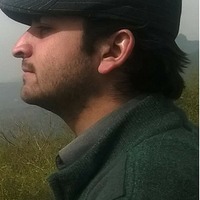
Herb Spencer
Personal Biography of
HERBERT JAMES SPENCER , PhD, DIC, BSc, ARCS
Born: Scotland, 1943 Exported to Bolton, Lancashire (England) in 1945. Educated: Bolton Grammar School (public scholarship) from 1953 to 1961; National (State) Scholarship to study physics at Imperial College, London University; Awarded first Class Honors BSc degree in 1964; Awarded National Academic Fellowship to study PhD at Imperial College in 1964. Awarded PhD by London University in theoretical physics in 1967;
Thesis title: 'Many Body Problems'.
Published in 'The Physical Review'. Awarded National Research Fellowship in theoretical physics at Imperial College in 1967. Published several research papers in leading physics journals from 1967-69. [see link to APS below]
http://journals.aps.org/search/results?sort=relevance&clauses=%5B%7B%22operator%22:%22AND%22,%22field%22:%22author%22,%22value%22:%22H.%20J.%20Spencer%22%7D%5D
Resigned from Academe to pursue more realistic challenges in 1968; hired by major computer companies in London (UK) and Connecticut (USA). Switched to management consulting (Deloitte's [UK] and Peat-Marwick [Canada]. Hired as information technology partner in new Western Canadian consulting firm. Established independent software contracting company in Western Canada, offering fixed price custom development of large-scale, online business information systems.
PERSONAL
Married my soul-mate, Eileen Horrigan in 1965; we have three children (son & two daughters). Emigrated to Vancouver, Canada in 1974. Imported both sets of parents to live with us on a small farm. Continued with my avocation for Natural Philosophy and continued private research since 1980.
My own life was radically impacted when my wife of over 50 years, was diagnosed in 2011 with a rare form of pancreatic cancer. Pancreatic cancer is usually such a virulent form that few victims survive six months after the initial diagnosis. In this case, it was the neuro-endocrine variety (PNET) that only occurs about 2% of the time with a much higher survival rate. In fact, the surgeon, who received the initial biopsy, after suspecting pancreatic cancer that had migrated to the liver (CT scan), first said to us: "Congratulations, you have just won the lottery." As it was, Eileen was 'adopted' by a research oncologist, who persuaded her to participate in a new study of a recently announced PNET chemotherapy drug, instead of surgery. This began a new phase in our lives of monthly medical visits (to several experts), a series of chemo treatments as each drug only seemed to 'work' for a limited time (each about 9 months) until it was too late for surgical intervention and we were faced with accepting the 'last drug' on the shelf (ironically one of the oldest chemotherapies). We declined this offer as it had poor outcomes and very savage side effects. My wife died 4 days later (October, 2015); luckily, peacefully in a superb local hospice, staffed with very caring people. This four-year journey exposed me to the personal side of cancer, while my scientific mind led me to undertake wide readings into all aspects of this dreadful disease. It was a great shock to realize how little our 'experts' knew about this problem and to eventually discover how little progress had been made winning the 'War on Cancer', declared by American President Richard Nixon in December 1971, when he signed the National Cancer Act. I have continued to research this topic ever since and wish to share my insights and understanding now with a much wider audience through a new short book.
Supervisors: Sebastian Doniach (now at Stanford Physics Department).
Phone: 604 542 2299
Address: Natural Philosopher
South Surrey
BC
Canada
HERBERT JAMES SPENCER , PhD, DIC, BSc, ARCS
Born: Scotland, 1943 Exported to Bolton, Lancashire (England) in 1945. Educated: Bolton Grammar School (public scholarship) from 1953 to 1961; National (State) Scholarship to study physics at Imperial College, London University; Awarded first Class Honors BSc degree in 1964; Awarded National Academic Fellowship to study PhD at Imperial College in 1964. Awarded PhD by London University in theoretical physics in 1967;
Thesis title: 'Many Body Problems'.
Published in 'The Physical Review'. Awarded National Research Fellowship in theoretical physics at Imperial College in 1967. Published several research papers in leading physics journals from 1967-69. [see link to APS below]
http://journals.aps.org/search/results?sort=relevance&clauses=%5B%7B%22operator%22:%22AND%22,%22field%22:%22author%22,%22value%22:%22H.%20J.%20Spencer%22%7D%5D
Resigned from Academe to pursue more realistic challenges in 1968; hired by major computer companies in London (UK) and Connecticut (USA). Switched to management consulting (Deloitte's [UK] and Peat-Marwick [Canada]. Hired as information technology partner in new Western Canadian consulting firm. Established independent software contracting company in Western Canada, offering fixed price custom development of large-scale, online business information systems.
PERSONAL
Married my soul-mate, Eileen Horrigan in 1965; we have three children (son & two daughters). Emigrated to Vancouver, Canada in 1974. Imported both sets of parents to live with us on a small farm. Continued with my avocation for Natural Philosophy and continued private research since 1980.
My own life was radically impacted when my wife of over 50 years, was diagnosed in 2011 with a rare form of pancreatic cancer. Pancreatic cancer is usually such a virulent form that few victims survive six months after the initial diagnosis. In this case, it was the neuro-endocrine variety (PNET) that only occurs about 2% of the time with a much higher survival rate. In fact, the surgeon, who received the initial biopsy, after suspecting pancreatic cancer that had migrated to the liver (CT scan), first said to us: "Congratulations, you have just won the lottery." As it was, Eileen was 'adopted' by a research oncologist, who persuaded her to participate in a new study of a recently announced PNET chemotherapy drug, instead of surgery. This began a new phase in our lives of monthly medical visits (to several experts), a series of chemo treatments as each drug only seemed to 'work' for a limited time (each about 9 months) until it was too late for surgical intervention and we were faced with accepting the 'last drug' on the shelf (ironically one of the oldest chemotherapies). We declined this offer as it had poor outcomes and very savage side effects. My wife died 4 days later (October, 2015); luckily, peacefully in a superb local hospice, staffed with very caring people. This four-year journey exposed me to the personal side of cancer, while my scientific mind led me to undertake wide readings into all aspects of this dreadful disease. It was a great shock to realize how little our 'experts' knew about this problem and to eventually discover how little progress had been made winning the 'War on Cancer', declared by American President Richard Nixon in December 1971, when he signed the National Cancer Act. I have continued to research this topic ever since and wish to share my insights and understanding now with a much wider audience through a new short book.
Supervisors: Sebastian Doniach (now at Stanford Physics Department).
Phone: 604 542 2299
Address: Natural Philosopher
South Surrey
BC
Canada
less
Related Authors
Hassan Jan
Islamia College University Peshawar
Yanina Oyola
Universidad Nacional del Comahue
Sahyt BASHOV
Siirt University







Uploads
Papers by Herb Spencer
Although Systems Theory is often presented as a mathematical scheme, this is not the approach used here. Recognizing that social under-standing requires natural languages, the emphasis here is on the organized presentation of concepts and their key relationships, especially when viewed from a systems perspective.
Since cancer has primarily been investigated from a scientific perspective and as science (especially physics) operates mainly through the Materialist Hypothesis (“Nature only consists of Matter”), this framework will be presented from a purely materialist perspective (which is difficult enough, without adding any further factors).
Cancer is seen here as molecular level mistakes that cause cells to regress to the wrong phase in their normal evolution, when their re-activated processes are inappropriate. Time is therefore a key organizing principle that is often overlooked when traditional (reductionist) approaches to cancer are used. Time is also the implicit dimension
in all dynamical systems and encourages focus on processes, rather than timeless structures.